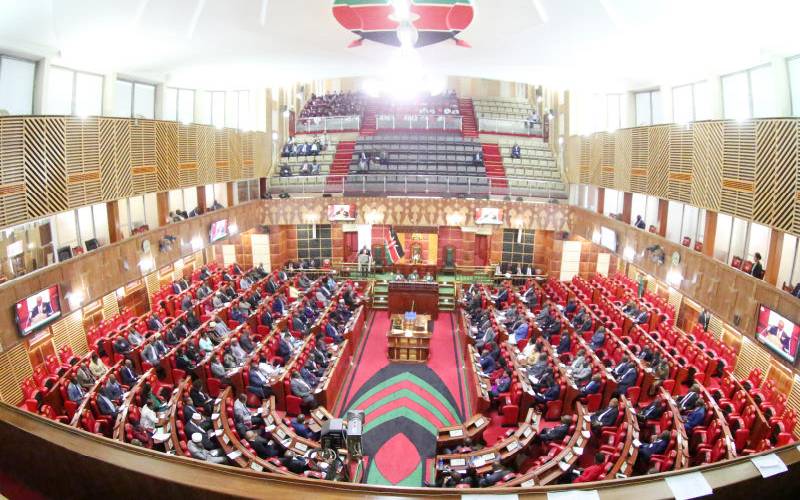Efforts by President William Ruto to tighten regulations on public officials doing business with the state have hit strong resistance from Members of Parliament, reigniting debate over ethics and governance in Kenya.
The Conflict of Interest Bill, 2023, originally aimed to enhance transparency and accountability by curbing the influence of private interests on public duties. However, Parliament substantially amended the Bill, diluting or deleting at least 12 critical clauses — prompting a memorandum of rejection from the President.
In response, the Senate Justice and Legal Affairs Committee has recommended accepting only a few of Ruto’s proposed changes. While they agreed to reinstate definitions and verification roles for the Ethics and Anti-Corruption Commission (EACC), they rejected broader provisions involving relatives and perceived conflicts of interest. The committee, chaired by Bomet Senator Hillary Sigei, maintained that clauses on perceived conflict are too subjective and could pose implementation challenges.
Among the most contentious issues is the deletion of a clause that extended conflict of interest to relatives and associates. Ruto wanted a broader definition to prevent public officers from using proxies. However, MPs narrowed it to only undeclared private interests directly affecting public duty. Similarly, MPs deleted requirements for officers to disclose gifts received by relatives, a move the President opposed as a potential loophole.
Another flashpoint is the role of the EACC. While the original Bill granted it full enforcement powers, MPs introduced a “reporting authority,” effectively curtailing EACC’s mandate. Ruto rejected this, citing Article 79 of the Constitution, which designates the EACC as the principal agency for enforcing leadership and integrity.
Although the committee supported the President’s call to allow the EACC to initiate forfeiture proceedings, it advised that such authority be clearly outlined in the Proceeds of Crime and Anti-Money Laundering Act to avoid overlapping roles with the Assets Recovery Agency.
As the Senate prepares to vote on the committee’s report, the fate of the Bill hangs in the balance. If two-thirds of the Senate adopts it, it will move to the National Assembly for concurrence before returning to the President for assent. The outcome could significantly shape Kenya’s anti-corruption framework moving forward.

